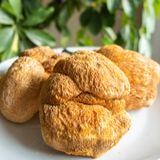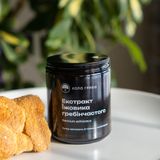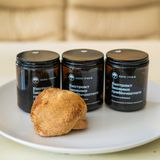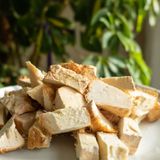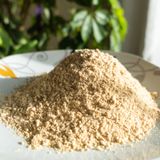Lion's Mane and Its Impact on Parkinson's Disease: Scientific Evidence
Lion's Mane (Hericium erinaceus) is not just a mushroom with medicinal properties, but a powerful natural remedy for supporting the health of the nervous system. Every day, scientists around the world continue to study the mechanisms of action of Lion's Mane on neurodegenerative diseases such as Parkinson's disease (PD).
Parkinson's disease is a slowly progressing neurological condition and is one of the most common motor disorders among adults worldwide. Modern medicine does not have a clear answer on how to stop the progression of the disease, and treatment is focused on correcting the deficiency of endogenous dopamine, which leads to gradual tolerance and the need for increased dosages.
To date, numerous studies confirm that Lion's Mane can positively affect the condition of patients with Parkinson's disease. These studies show that the active compounds of the mushroom can help protect neurons, reduce oxidative stress, and improve motor functions.
Let's take a closer look at studies conducted on living organisms (in our case, mice):
One study was conducted in collaboration with the Department of Pathology, Chang Gung Memorial Hospital, Taiwan, and published in the journal Antioxidants in 2020. The aim of this study was to evaluate the effect of erinacine A on neuroprotection. It was found that erinacine A stimulates the synthesis of nerve growth factor (NGF) and activates neuronal survival signaling pathways. The results showed a significant reduction in neuronal death and an improvement in brain cell health.
Another study was conducted in Taiwan by a team from the Institute of Biotechnology and Pharmaceutical Research in collaboration with JOWIN BIOPHARMA Inc. and published in the Journal of Drug Research and Development in 2020. The goal was to evaluate the effect on dopamine levels and the number of tyrosine hydroxylase-positive neurons.
These studies revealed:
- Stimulation of NGF synthesis: Erinacines contained in Lion's Mane significantly increase the production of nerve growth factor (NGF), which supports the recovery and protection of neurons.
- Increase in dopamine levels: Animal experiments showed that dopamine levels in the mice's brains increased by 20% at the minimum dose and by 70% at the maximum dose of the mushroom extract.
- Number of tyrosine hydroxylase-positive neurons: Tyrosine hydroxylase is an enzyme responsible for dopamine synthesis. After taking Lion's Mane, the number of neurons positive for tyrosine hydroxylase increased from 18% to 100%, depending on the dose.
- Reduction in neuronal death: As a result of treatment with Lion's Mane, the number of dead neurons decreased by 14-22%.
- Reduction of oxidative stress: The formation of reactive oxygen species (ROS), which cause cell damage, decreased by 30%, indicating the strong antioxidant effect of the mushroom.
- Improvement in motor functions: In the experimental animals, there was a significant improvement in motor functions. Symptoms such as tremors, muscle rigidity, and coordination problems greatly decreased after taking mushroom extracts.
The study results indicate that erinacine A activates the cell's protective mechanisms, shields neurons from death, stimulates their recovery, and reduces the activity of toxic molecules that cause inflammation and damage to brain cells. These processes help stop the destruction of dopaminergic neurons responsible for motor control and reduce the symptoms of Parkinson's disease.
If you or your loved ones are facing problems related to Parkinson's disease or are looking for ways to support nervous system health, pay attention to Lion's Mane. This mushroom can become a powerful ally in the fight for brain health.
Order Lion's Mane in our store and improve your health with natural remedies!
For each client individually, we draw up instructions according to his indicators and requests
Monthly Course:
- Lion's Mane Mushroom (whole/powder) 100 g - $27
- Lion's Mane Mushroom Extract 90 capsules - $46
- Lion's Mane Mushroom Extract for 3 months 270 capsules - $119
Other articles on the topic:
- Properties of Lion's Mane Mushroom
- How Lion's Mane Mushroom Improves the Condition in Alzheimer's Disease
- Lion's Mane mushroom - the longevity mushroom!
Contact us:






